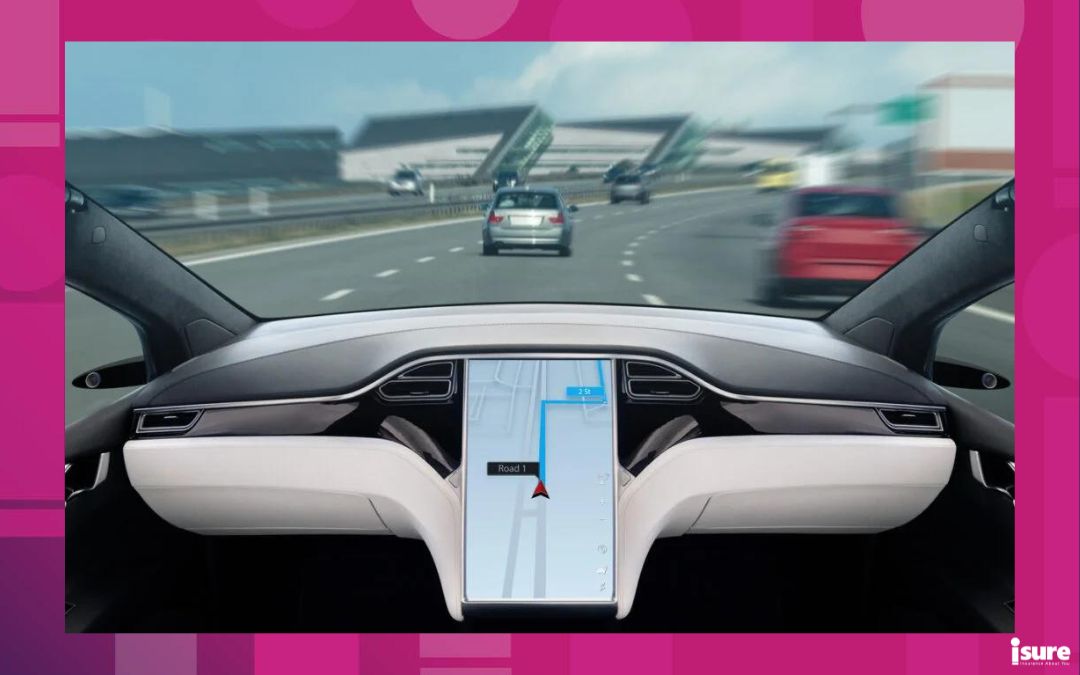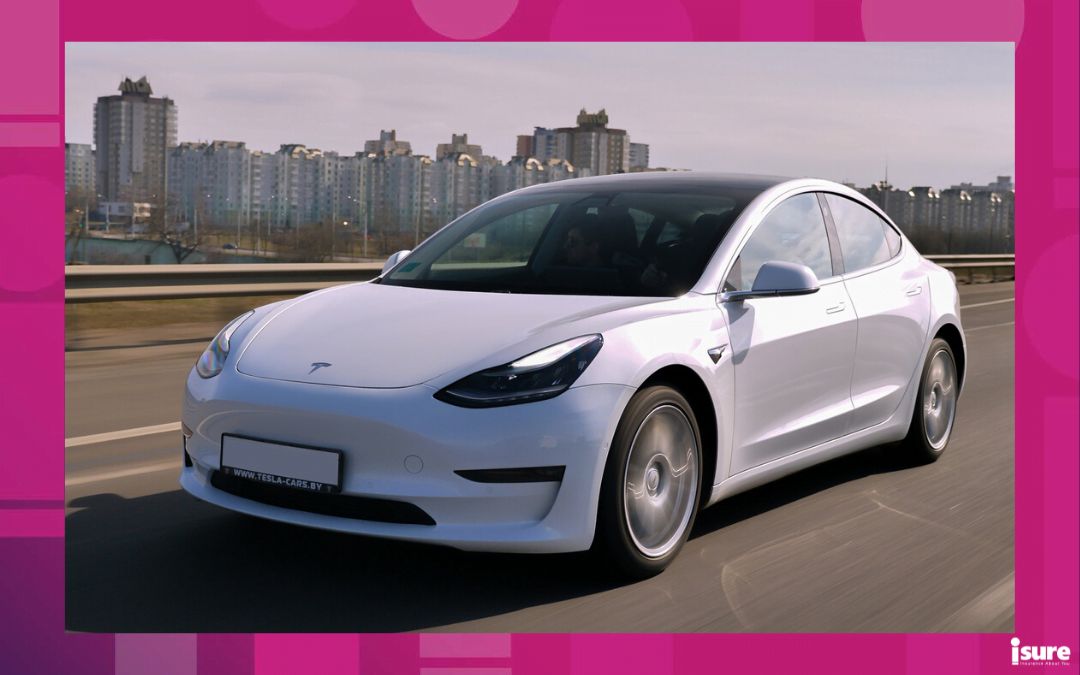It may be hard to believe, but cars and trucks that drive themselves could start hitting the road within the next decade. This can translate into a savings of $65 billion for Canadian drivers! Fewer collisions, reduced traffic congestion, lower fuel costs, and less time wasted behind the wheel contribute to this savings windfall. In 2016, Ontario launched a “10-year pilot” plan. It allows Autonomous Vehicles (AVs) on our roads with a licensed driver in the driver’s seat (at all times). A recent CarGurus Self-Driving Vehicle Sentiment Survey shows that Canadians are split when it comes to autonomous vehicles. You might be curious to know where Canada stands in all of this. We examine the CarGurus report and highlight some of the issues impacting whether Canadians should embrace self-driving cars.
What does this self-driving vehicle survey tell us?
Canadians polled about self-driving cars have a fairly split opinion about automation. Overall, the report shows that people have guarded expectations for the future of autonomous vehicles. While there is some excitement about self-driving features, Canadian drivers are equally concerned about the technology. Only 32 percent of those polled are excited about the development of autonomous vehicles. Concern over automated vehicles (AV) is at 29 percent, while the remaining 38 percent of those polled are neutral. Tech and motor companies, like Tesla, Uber, BMW, Toyota, GM, Volvo, and Nissan are all part of the race. They want to see fully driverless vehicles on the road in just a few short years from now.
Concerns surrounding autonomous vehicles
Madison Gross, Director of Customer Insights at CarGurus stated that, “While there is hesitancy around self-driving technology, how consumers envision themselves using the technology would require full autonomy – which is still a goal that the industry is striving toward. Shoppers are looking for driving technology that helps them stay in control, rather than technology that takes total control.” Despite some apprehension around AVs, consumers still have high hopes for their capabilities. More than half (53%) of respondents would use AVs to drive them home safely when unable to do so themselves. 37% would want their AV to be able to park itself.
With momentum gaining surrounding AVs, here are some concerns that Canadians have regarding self-driving cars:
1. Climate
Canadian winters can be some of the most treacherous to navigate, even for an experienced driver. For those who navigate through white-out conditions, it is difficult to imagine not being in control of your vehicle. Will the production of AVs be made more problematic when trying to adapt to our winters? The reason so many companies are testing their vehicles in places like Arizona is it’s relatively flat and dry. In more varied landscapes or inclement weather, vehicle detection and other autonomous capabilities become more complex. Canadians are correct to question whether robots can safely navigate our snow-covered roads. How can manufacturers make these computerized cars more reliable in the toughest of conditions? As Canadians, we wonder if perhaps current testing on our streets is going to address these unique concerns.
2. Safety of autonomous vehicles
The CarGurus report also addresses the issue of safety. Of those polled, many had concerns about self-driving technology. Approximately 44 percent indicated that they’re not comfortable relying on these features for safety. However, 70 percent of respondents agreed that driver assistance features, such as lane-centering steering, improve the safety of car travel. Consumers expressed the most interest in advanced driver-assistance systems (ADAS). This includes backup cameras (40%) and blind-spot monitoring (55%), features that many cars already have. In the future, we could see separate lanes for self-driving vehicles or “go-zones”. These lanes will allow road space specifically for fully autonomous vehicles. We understand the idea of putting your life in the hands of a car can be daunting. However, we are embracing the technology around it.
Despite some apprehension around self-driving vehicles, consumers still have high hopes for their capabilities. More than half (53%) of respondents would use AVs to drive them home safely when unable to do so themselves. 37% would want their AV to be able to park itself.
3. Expense
Nearly half of respondents believe that automated cars will be very expensive. We’ve seen that already with Tesla and the rapidly rising price of its Autopilot add-ons. Tesla’s Full Self-Driving option cost of just $5,000 in April 2019 has since risen to $10,000. Elon Musk has said that price increases will continue as it adds more features to the Autopilot service. AVs could eliminate five billion hours per year that we Canadians spend behind the wheel. That would be a $20 billion savings! Self-driving vehicles could potentially reduce the need for car ownership. They can operate safely while closer to one another on the roads and easily adjust to traffic. This would save Canadians $5 billion a year in traffic congestion costs alone.
4. Responsibility
Driverless vehicles must be able to predict the unpredictable. AVs need to communicate their position and trajectory with each other on the road. Also, AVs must be ready to react to the sudden actions of walkers, joggers, bicyclists, and manned vehicles. Some 41 percent polled said they’re worried about who is responsible when something goes wrong in an AV. However, just 25 percent believe that the technology isn’t ready yet. In order for self-driving vehicles to be nationally accepted, they need advanced software capabilities. This will include software that can reliably sense and maintain a relationship with pedestrians and other motorists.
5. Economy
There’s no doubt that technology is shifting the way Canadians work. Once fully autonomous cars take over the roads, many of us employed as bus drivers, taxi drivers, and delivery persons will be impacted. Driverless vehicles may improve the efficiency and productivity of these jobs, but the fear is that many could lose their jobs to AI. The potential job losses may cause some people to lobby for a slower transition away from human drivers. Currently, we are already riding in some public transit vehicles capable of driving themselves, but still have drivers for this reason. On the bright side, while jobs may be lost in the short term, these losses won’t happen overnight. Also, new jobs will be created as the demand for engineers, technicians, software developers, and designers increases to help build and maintain these driverless vehicles.
6. Staying competitive in the market
Canada wants to keep up with other countries already on their way to fully automated vehicles. Therefore, The University of Waterloo, the Erwin Hymer Group, and Blackberry QNX are collaborating to launch a pilot project that tests driverless vehicles on Ontario roads. Ontario is investing $2.95 million over the next decade to help support Canadians who want to innovate and create in the autonomous driving space. Transport Canada and the Government believe the technology behind driverless vehicles is growing rapidly, and we Canadians need to catch up. In 2016, a part of Canada’s federal budget allocated funds towards developing standards and regulations for autonomous vehicles. The intention is to have us be competitive on the global market.
7. Government
The Canadian government is responsible for establishing nationwide policies and regulations. To that end, they must ensure safety standards and emission requirements are met for autonomous vehicles. Provinces and territorial governments cover driving licenses, vehicle registration, insurance, rules of the road, and changes to infrastructure. These must fall in line with the federal government’s safety requirements. Automakers, auto part manufacturers, and tech companies all play a vital role in the future of Canada’s AV industry. If car manufacturers are required to accept more responsibility for damage and injuries, liability laws would need to adapt. Without this evolution in liability, lawsuit concerns could drive fledgling manufacturers and their suppliers out of business. In the end, the Government of Canada will always have the final say on what is legal and what is not when it comes to driverless vehicles on our roads.
8. Ownership of autonomous vehicles
According to the report compiled by CarGurus, automobile ownership appears to be on the decline for many of us. More people in urban areas are opting for public transportation and shared rides. Some people wonder: When all vehicles are self-driving, will we still own cars? Of the Canadians surveyed, only 17 percent said they’d consider owning a self-driving vehicle in the next five years. Going forward, cars may belong to a company, municipality, or other group rather than ourselves. When needed, we may be able to summon these vehicles on our phones from a separate location. Relating back to costs, individual households could save $2,700 a year, mostly through increased car-sharing. Vijay Gill of the Conference Board of Canada surmises that, “If you could get a car very immediately to your door, do you need to own a car?”
9. Impact on insurance
Currently, most collisions are a result of human error or negligence. Therefore, car insurance policies are written from this perspective. But what happens when you are not in control of the vehicle? It’s safe to assume that more collisions will be a result of product malfunction instead of human error. This means that disputes between car insurance companies and vehicle manufacturers will likely lead to litigation. This can result in significant delays in resolving auto claims.
Final thoughts on autonomous vehicles
Transitioning to fully autonomous vehicles in Canada is going to take time. There’s no doubt that the era of driverless cars is coming. It will likely still be years before we will see fully self-driving cars become available to Canadian consumers. However, testing and interest in Canada are quickly ramping up. Although driverless vehicles are considered a luxury now, the future looks bright for a long-term relationship between Canadians and AVs. Contact isure today for a car insurance quote.




